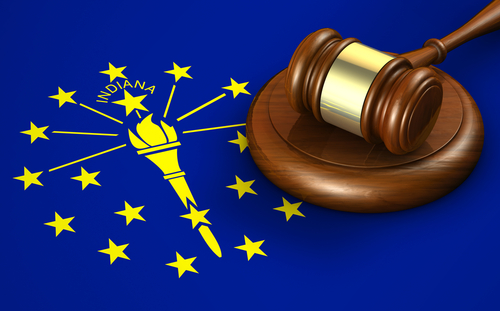Ban on approaching or recording hunters violates First Amendment, 7th Circuit says

“In Wisconsin, hunters have a constitutional right to hunt, but they do not have a right to avoid contact with people like plaintiffs who disapprove of their hunting,” wrote Judge David Frank Hamilton of the 7th U.S. Circuit Court of Appeals at Chicago. Photo from Shutterstock.
Citing the First Amendment, a Chicago-based federal appeals court has struck down changes to a Wisconsin “hunter harassment law” that bans recording and approaching hunters.
The 7th U.S. Circuit Court of Appeals at Chicago ruled 2-1 that the changes are unconstitutionally vague and overbroad, and that they discriminate against speech based on viewpoint.
The Volokh Conspiracy and Thomson Reuters’ Westlaw Today have coverage of the Nov. 13 opinion.
The Animal Legal Defense Fund represented the three plaintiffs in the lawsuit, according to a Nov. 14 press release praising the ruling. The plaintiffs are a documentary filmmaker, a journalist and an activist who are associated with the Wolf Patrol, a group opposed to hunting.
At issue are changes that ban intentionally interfering or attempting to interfere with lawful hunting by:
• “Maintaining a visual or physical proximity” to a hunter.
• “Approaching or confronting” the hunter.
• Photographing or videotaping a hunter’s activity.
The amendments to the law reach those who engage in a series of two or more such acts over time, however short or long.
Judge David Frank Hamilton wrote the majority opinion.
The provisions that ban “maintaining a visual or physical proximity” to a hunter and “approaching or confronting” a hunter are unconstitutionally vague, Hamilton wrote.
“They fail to specify, or even to offer any guidance about, how far away a person must stay to avoid engaging in unlawful interference,” he wrote.
The ban on recording is also overbroad, according to the opinion.
Before it was amended, the hunter harassment law barred physically interfering with hunting, Hamilton said. So the amendment banning recording is aimed at banning recordings that don’t physically interfere with hunting, which chills First Amendment activities, the opinion said.
In addition, the amendments discriminate based on viewpoint because they criminalize speech only when the speaker or the photographer has the intent to disrupt hunting activities, the opinion said. The amendments were “specifically intended to target the expressive activities of members of Wolf Patrol and other anti-hunting advocates,” Hamilton wrote.
Using a strict scrutiny analysis, Hamilton concluded that the amendments are not necessary for Wisconsin’s interest in promoting and protecting hunting.
“In Wisconsin, hunters have a constitutional right to hunt, but they do not have a right to avoid contact with people like plaintiffs who disapprove of their hunting,” Hamilton said.
A dissenting judge, Judge Thomas Lee Kirsch II, argued that the plaintiffs did not have standing.
The case is Brown v. Kemp.



